Performing notarial acts in the UK: what Ukrainians should know
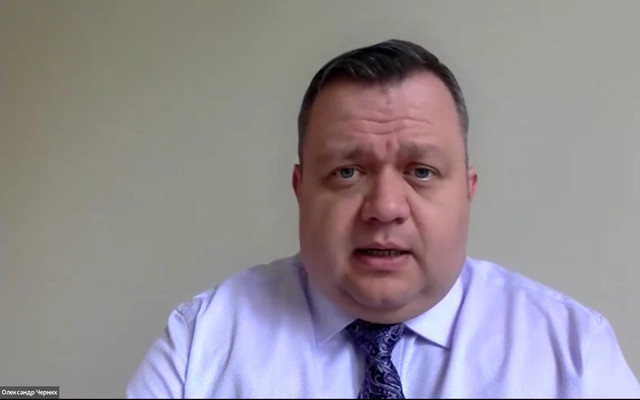
In the UK, there are several bodies that can perform notarial acts for Ukrainian citizens temporarily residing in this country, including representatives of the Ukrainian Consulate.
The peculiarities and differences between notarial acts in Ukraine and the United Kingdom were discussed during the webinar by Oleksandr Chernykh, representative of the UNBA in Scotland, the United Kingdom of Great Britain and Northern Ireland, Olena Batryna, lawyer, project coordinator of 1ST Ukrainian business LTD, and Valeriia Dzhafarova, attorney-at-law.
Thus, according to Article 100 of the Law «On Notaries», Ukrainian notaries accept documents drawn up abroad with the participation of foreign authorities or emanating from them (including foreign notaries). In the UK, they can perform:
- certification of copies: postal workers, minister of religion, certified accountant, dentist, teacher, notary.
- notarization of powers of attorney: notary, Office of the Public Guardian.
According to Article 13 of the Law on Private International Law and Article 100 of the Law on Notaries, documents issued by authorized bodies of foreign countries in the prescribed form are recognized as valid in Ukraine. British (Scottish) notaries act in accordance with their national legislation, namely the Guidance re Acting as Notary Public, which defines the following requirements for the performance of a notarial act:
- identification of the person (the document must contain Latin characters)
- establishment of the person's will (the document must be understandable primarily to the applicant - drawn up in the native language);
- establishing the legal capacity of a person;
- establishing the fact of signing the document.
Before signing, a notary in Ukraine may read the text to the applicant and make sure that the person understands the content. If necessary, the notary engages an interpreter. In contrast, notaries in the UK do not draft documents; this is a separate paid service that is charged separately.
Stages of notarial acts:
- drafting a document (in English, bilingual or Ukrainian)
- verification of documents;
- notarization of the document;
- apostillization by the FCDO (for use outside the UK).
You can apply to a notary both by visiting and by video. In this case, there is an appropriate methodology for asking questions to find out the identity of the person, his/her legal capacity, etc. Notary in Scotland has its own peculiarities, in particular:
- only a solicitor (lawyer) can be a notary in Scotland. Notary status is an optional option;
- notaries are still guided by the laws of the XIX century;
- do not use notarial forms;
- may record video of the notarial act;
- documents are not stitched (done upon request);
- there are special online programs that generate drafts of notarial documents;
- notarized documents usually contain no more than 10 sentences;
- notaries have no requirements for a notary office, they can work anywhere and in coworking spaces;
- there is no state-set fee for notarial services;
- a power of attorney can be issued for 100 years or without specifying an expiration date;
- deception of a notary is a serious crime.
In addition to applying to British notaries, Ukrainian citizens can also apply for notarization at Ukrainian consulates abroad. The address of the Consulate of Ukraine in the UK: UK 8 Windsor St, Edinburgh EH7 5JR or in London 78 Kensington Park Road, London, W11 2PL.
The powers of consular offices to perform notarial acts are established by the Law «On Notaries», the Consular Charter of Ukraine, approved by the Decree of the President of Ukraine No. 127/94 dated April 2, 1994, and other regulatory acts.
Consular offices of Ukraine protect the rights and interests of Ukraine, legal entities and citizens of Ukraine abroad, and promote the development of friendly relations between Ukraine and other states. The consul is obliged to take measures to ensure that citizens of Ukraine enjoy all rights in full.
The consul is authorized to:
- register marriage and divorce;
- carry out the adoption of a child;
- register acts of civil status of Ukrainian citizens;
- issue passports and extend their validity;
- make decisions on registration of acquisition of Ukrainian citizenship;
- perform notarial acts: certify transactions (contracts, wills, powers of attorney, etc.), except for contracts regarding real estate located in Ukraine; certify the correctness of copies of documents, translation of documents; certify facts (about the stay of an individual in a certain place), etc.
In accordance with the Consular Statute of Ukraine:
- notarial acts are performed in the premises of a consular post of Ukraine. In some cases - outside it (Article 45);
- notarized documents are signed in the presence of the Consul who performs notarial acts. If the document is signed in the absence of the Consul, the person must personally confirm that the document was signed by him/her (Article 48);
- notarial records in consular offices are kept in the state language of Ukraine (Article 50);
- consular fees are charged for consular acts performed abroad and on the territory of Ukraine (Article 56);
- if the notarial act contradicts the legislation of Ukraine, the Consul refuses to perform such an act (Article 52);
- when a person who has applied for a notarial act does not know the Ukrainian language, the texts of the documents to be executed must be translated by the Consul or an interpreter (Article 50).
Another feature of notarial acts in the UK is obtaining an apostille.
An apostille is issued by the Foreign and Commonwealth Office (FCDO) and confirms that a signature, stamp or seal has been affixed by a public official or that a document has been provided by a UK government agency.
Pursuant to Article 13 of the Law of Ukraine «On Private International Law», documents issued by authorized bodies of foreign countries in the prescribed form are recognized as valid in Ukraine in case of their legalization, unless otherwise provided by law or an international treaty of Ukraine.
The Convention Abolishing the Legalization of Foreign Public Documents (Ukraine acceded to on 10.01.2002) states in Article 3 that «the only formal procedure that may be required to authenticate the signature, the capacity in which the person signing the document acted and, where applicable, the authenticity of the seal or stamp with which the document is bound, is the affixing of the apostille provided for in Article 4 by the competent authority of the State in which the document was drawn up».
According to the Cabinet of Ministers Resolution No. 61 dated January 18, 2003, the following authorities are authorized to affix apostille in Ukraine:
- for documents issued by notaries of Ukraine, justice authorities, courts - the Ministry of Justice or private and public notaries;
- for documents issued by the State Migration Service related to migration - the State Migration Service (starting from January 2023);
- for documents issued by the tax service - the State Tax Service of Ukraine (starting from January 2023);
- The Ministry of Education continues to apostille documents issued by educational institutions;
- for documents issued within the framework of service provision by the territorial bodies of the Ministry of Internal Affairs - by the Ministry of Internal Affairs;
- for all other types of documents - the Ministry of Foreign Affairs.
If a person is outside of Ukraine and needs to affix an apostille on laminated certificates, the best way is to provide a power of attorney for this action (the power of attorney can be certified at the consulate or by a local notary), obtain new certificates (the law does not limit the number of applications for obtaining documents issued by the Civil Registry Office) and the representative will apply to the justice authorities, including notaries, for legalization.
The Consulate of Ukraine abroad certifies the powers of attorney in accordance with the procedure and rules of the Ukrainian legislation.
A power of attorney certified by the Consul is drawn up on a white sheet of paper, in Ukrainian and is valid subject to mandatory registration of this power of attorney in the Unified Register of Powers of Attorney of Ukraine (in accordance with the Regulations on the Unified Register of Powers of Attorney).
Powers of attorney issued by a foreign notary are not registered in the Unified Register of Powers of Attorney, as they are not subject to the Regulation on the Unified Register of Powers of Attorney - they are executed by a foreign notary in accordance with the laws of the country of certification (on sheets, preferably white) with legalization (or apostille).
The difference between such powers of attorney is that the laws of different countries certify/notarize powers of attorney in different ways. However, they are valid on the territory of Ukraine provided that they are legalized in the country of issue and accepted by notaries of Ukraine (Article 34 of the Law of Ukraine «On Private International Law» states that the procedure for issuing, validity, termination and legal consequences of termination of a power of attorney are determined by the law of the state in which the power of attorney is issued).
Such powers of attorney must be accompanied by a translation into Ukrainian, and the translator's signature must be certified by a notary of Ukraine (such a power of attorney may be drawn up only in Ukrainian, in which case only the certification inscription on the power of attorney and the apostille will be translated).
Peculiarities of certification of powers of attorney by the Consul:
- must be written exclusively in Ukrainian;
- requires registration in the Unified Register of Powers of Attorney of Ukraine;
- for certification, it is necessary to apply to the Consulate of Ukraine abroad;
- valid only in Ukraine (and only if apostilled in Ukraine or properly legalized, can be used outside of Ukraine).
Peculiarities of notarization of powers of attorney by a local notary:
- can be made in any language or two languages;
- does not require any registration, except for an apostille;
- in Ukraine, there is a need to translate what is stated in English (apostille and notarized inscription);
- can be certified at any time and without the need to visit a notary (by video);
- valid in all countries of the world that are parties to the Hague Convention, as it has an apostille;
- there is no need to present military documents to a notary;
- it can be quickly certified and apostilled (ready the next day).
The term of the power of attorney is set in the document itself. If the term of the power of attorney is not specified, it remains in force until its termination (Article 245 of the Civil Code).
Popular news
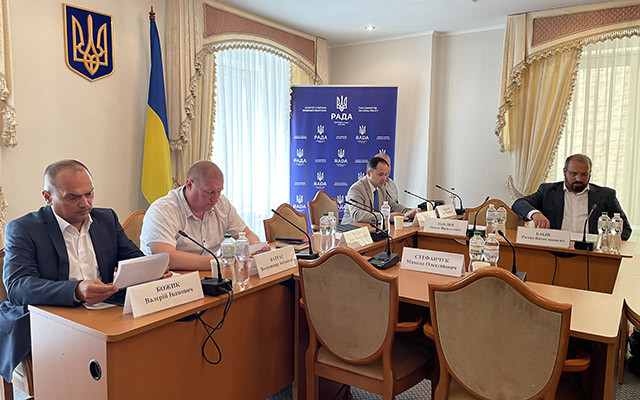
Guarantees of the practice of law
The Verkhovna Rada is waiting for the Minister of Justice to take action on signing the Convention on the protection of t…
Ukraine, which was directly involved in the preparation of the world's first Council of Europe Convention on the protection of the profession of advocate, has still not signed it. There appear to be no formal objections, but no real steps have been taken towards accession either.
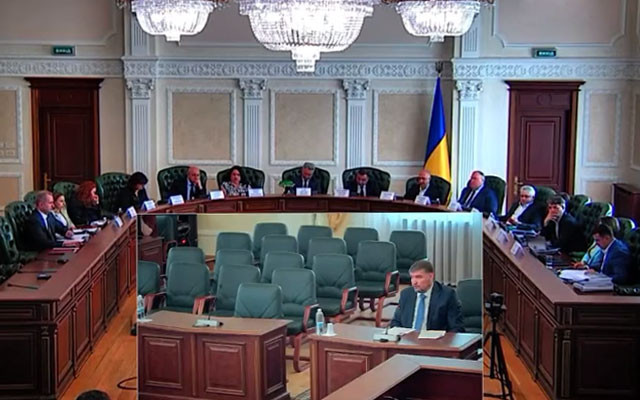
Guarantees of the practice of law
BCU reports interference by a member of the High Council of Justice in the activities of a lawyer and submits officia…
The Bar Council of Ukraine, having considered the statement of advocate Oleksandr Vikhrov, established the fact of interference by Roman Maselko, a member of the High Council of Justice, in the advocacy activities, violation of attorney-client privilege, and exceeding his powers in evaluating a candidate for the position of judge.
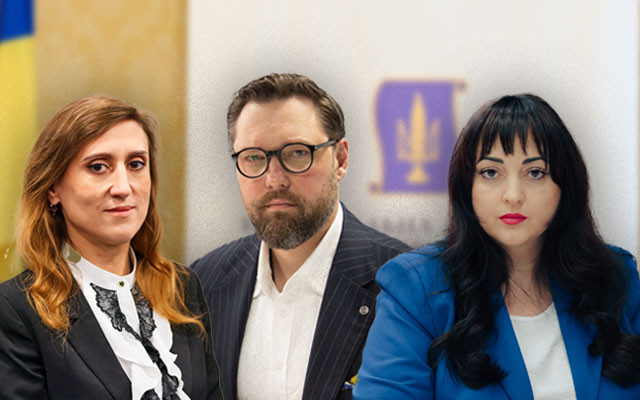
Self-government
BCU selected candidates for membership of the Competition Commission for the selection of members of the HQCJ
In accordance with Article 95-1 of the Law of Ukraine «On the judicial system and status of judges», the Bar Council of Ukraine proposed three candidates to the High Council of Justice for consideration as members of the Competition Commission to conduct a competition for the position of member of the High Qualification Commission of Judges of Ukraine under the BCU quota.
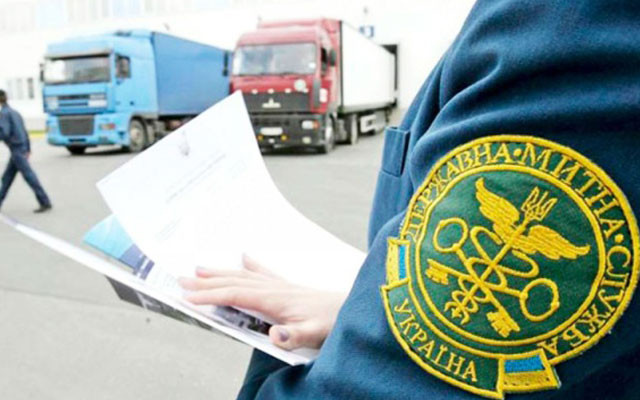
Legislation
DIC and customs control: advocates warn against the risks of draft law No. 13421
Ukrainian defense companies face bureaucratic delays in importing components, which could critically affect the timing of government contracts. At the same time, the mechanism proposed in the Verkhovna Rada creates risks that could outweigh the potential benefits for the industry.
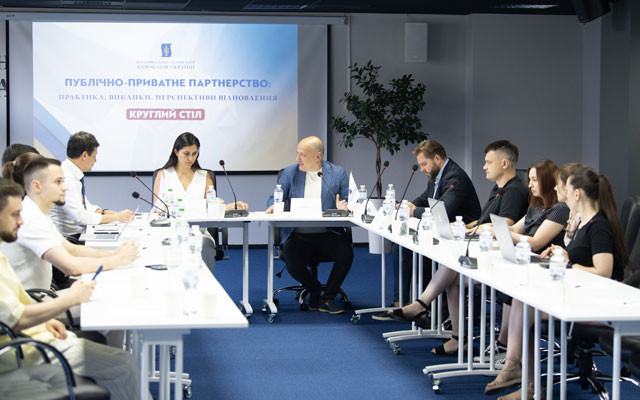
Discussion
Partnership for reconstruction: UNBA discusses new law on PPPs
Public-private partnerships are considered one of the key tools for Ukraine's recovery, but in practice, their mechanisms remain complex, poorly understood, and often ineffective.

Guarantees of the practice of law
Defended police officers — ended up in the army: advocate mobilized while performing his duties
An advocate specializing in defending the rights of law enforcement officers and who had repeatedly won cases against the police was mobilized while performing his professional duties. The day before, a report appeared in the Oberig registry stating that he had violated military registration rules, and his current deferral was canceled. The advocate was detained, taken to the TCC and the SS, beaten and sent to a military unit.
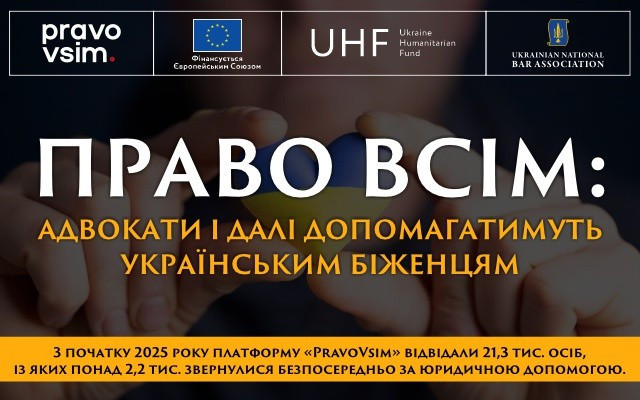
Support
Ukrainians will be assisted in submitting applications to the RD4U damage registry
Ukrainians who have suffered damage as a result of Russian aggression can receive free assistance in preparing applications to the Register of Damage for Ukraine (RD4U). This support is being provided by the legal platform PravoVsim.

Announcements
The BCU has begun accepting documents from candidates for the Competition Commission for the selection of members of the HQCJ
The Bar Council of Ukraine announces the start of accepting documents from candidates who wish to be elected to the Competition Commission for the selection of members of the High Qualification Commission of Judges under the BCU quota.
Publications

Ihor Kolesnykov A BRIEF SUMMARY REGARDING THE APPLICATION OF THE ORDER ON EXTENDED CONFISCATION IN LATVIA REGARDING FINANCIAL ASSETS OF…

Valentyn Gvozdiy WORKING IN A WAR ZONE

Lydia Izovitova Formula of perfection

Sergiy Vylkov Our judicial system is so built that courts do not trust advocates

Iryna Vasylyk Advocacy in the proclamation of Independence of Ukraine

Oleksandr DULSKY When we cross the border of the Supreme Anti-Corruption Court, we get into another department of the National Anti-Corruption…

Vadym Krasnyk The UNBA will work, and all obstacles and restrictions are only temporary inconveniences

Lydia Izovitova Interview with Lydia Izovitova on the occasion of the 8th anniversary of the founding of UNBA: We are the voice of t…
